Coronavirus: Trump 'considering quarantining New York'
- Published
Donald Trump tells reporters he is "considering quarantine" for some areas
US President Donald Trump has said he is considering imposing a quarantine on New York state in a bid to slow the spread of the deadly coronavirus.
"We'd like to see [it] quarantined because it's a hotspot," he told reporters. "I'm thinking about that."
He spoke as confirmed cases in the state increased to more than 52,000, about half of the total in the US.
But New York Governor Andrew Cuomo said the idea was "preposterous", "anti-American" and a "declaration of war".
Mr Cuomo said the state had already implemented "quarantine" measures, such as banning major gatherings and ordering people to remain at home, but that he would oppose any "lockdown" efforts.
"If you said we were geographically restricted from leaving, that would be a lockdown," Mr Cuomo told CNN on Saturday.
"Then we would be Wuhan, China, and that wouldn't make any sense," he said, adding that this would cause the stock market to crash in a way that would make it impossible for the US economy to "recover for months, if not years".
"You would paralyse the financial sector," he said.

A SIMPLE GUIDE: What are the symptoms?
AVOIDING CONTACT: Should I self-isolate?
MAPS AND CHARTS: Visual guide to the outbreak

What are Trump's 'quarantine' measures?
Mr Cuomo earlier told reporters that he had spoken with Mr Trump by phone, but that the president hadn't mentioned a state "quarantine".
"I haven't had those conversations," he said, adding: "I don't even know what that means."
Mr Cuomo said he would sue Rhode Island if the authorities there continued targeting New Yorkers and threatening to punish them for failing to quarantine.
Rhode Island Governor Gina Raimondo has also described New York as a "hot zone", and has mobilised soldiers to seek out those leaving the state.
New York state has the highest number of cases of Covid-19 in the US.
Speaking before he left to visit a US Navy hospital ship in Virginia, Mr Trump said that "New Jersey [and] certain parts of Connecticut" could also be quarantined under the measures.
"We might not have to do it but there's a possibility that sometime today we'll do a quarantine — short term [for] two weeks," he said.
Allow X content?
This article contains content provided by X. We ask for your permission before anything is loaded, as they may be using cookies and other technologies. You may want to read X’s cookie policy, external and privacy policy, external before accepting. To view this content choose ‘accept and continue’.

But Mr Cuomo, who was holding a daily press briefing at the time of Mr Trump's comments on Saturday, expressed concern at the idea.
"I don't know how that can be legally enforceable," he said. "And from a medical point of view, I don't know what you would be accomplishing.
"But I can tell you I don't even like the sound of it. Not even understanding what it is, I don't like the sound of it."
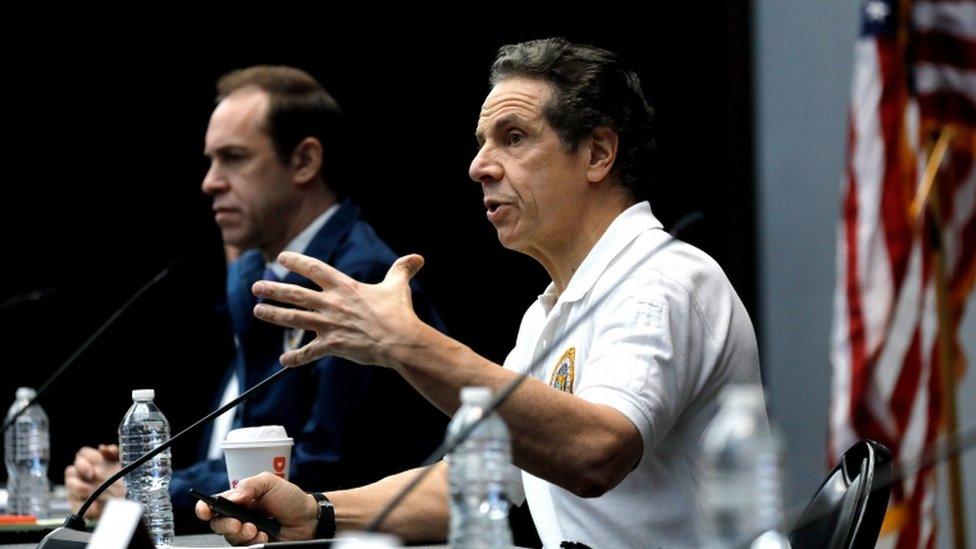
New York's governor expressed concern at the idea of a quarantine
Mr Trump did not provide further details about what quarantining New York or other badly hit US states would look like.
But he said it would be aimed at slowing the spread of the virus to other parts of the US.
"They're having problems down in Florida. A lot of New Yorkers are going down. We don't want that," he said as he left the White House.
Similar quarantine measures in other countries have involved widespread closures, bans on public gatherings and major restrictions on travel in and out of the affected area.
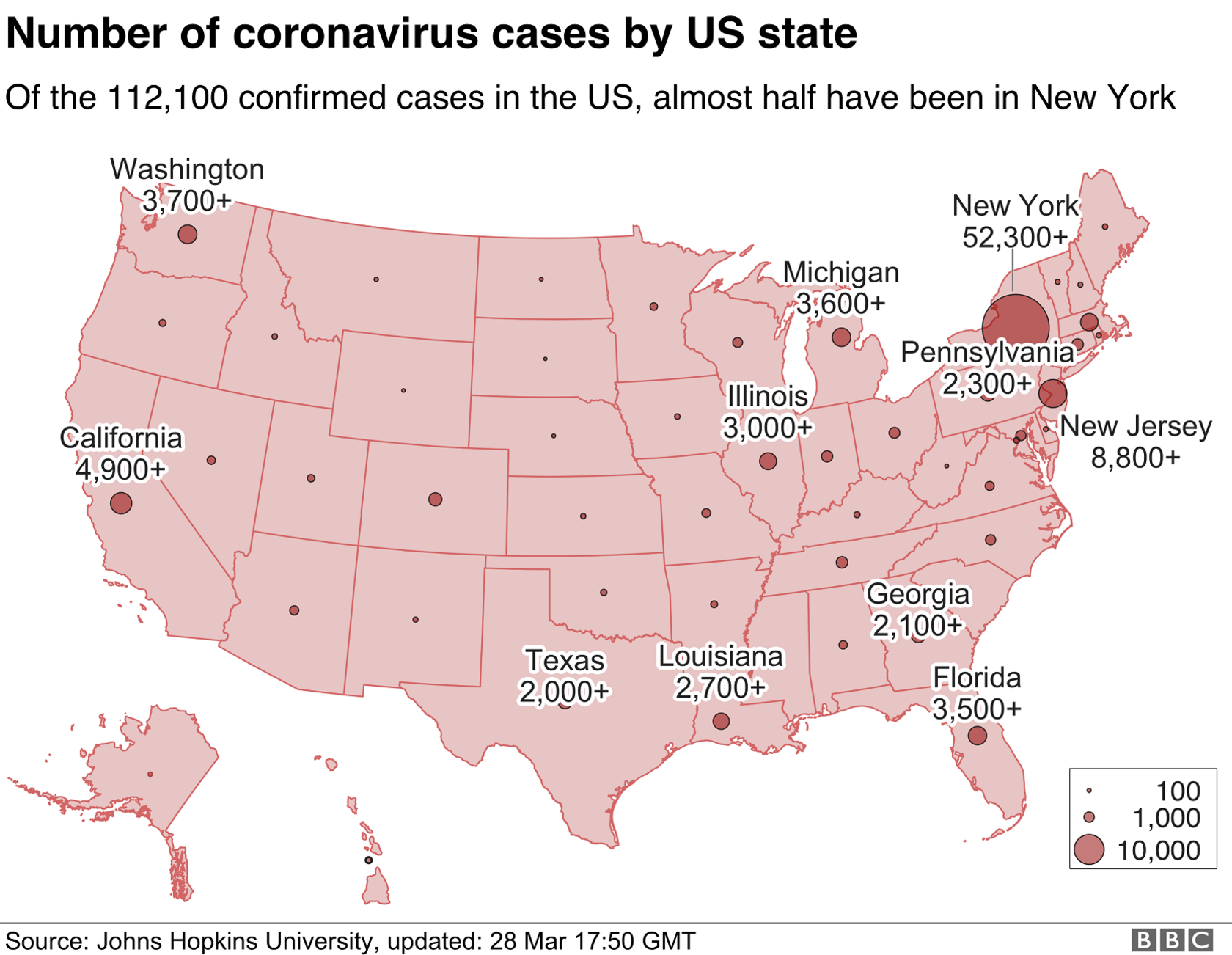

The White House has said anyone leaving New York City should self-isolate for 14 days. On Friday, the governor of nearby Rhode Island deployed National Guard troops to stop cars with a New York licence plate to remind them of the state's restriction that they quarantine.
Soldiers are going door-to-door in coastal vacation communities to ask if any residents have recently visited New York City.

How can it be enforced?
Analysis by Peter Bowes, BBC News, Los Angeles
The quarantining of entire states would mark a significant and ominous ramping up of the Trump administration's response to the coronavirus.
There have been rumours for the past two weeks that a mandatory, national quarantine could be implemented, but this is the first time Mr Trump has indicated that state borders could be closed.
The initial response of the governor of New York suggests an attempt by the federal government to quarantine the state could be problematic.
While the president does have sweeping powers, especially during a national emergency, it is the role of state and local governments to take the lead in preventing the spread of disease.
Mr Trump said there would be a decision very soon and that trade between states would not be affected. But if he goes ahead, such an order could be challenged in the courts.

What's the latest in the US?
With more than 1,800 virus-related fatalities, the US death toll remains lower than those in Italy and China. But there are virus hotspots in New York, New Orleans, Detroit and Seattle.
In his press briefing, Mr Cuomo said New York was postponing its presidential primary by almost two months until 23 June as a result of the outbreak.
He also said the apex of the crisis would occur in the next 14 to 21 days.
Mr Cuomo said the state would soon require 30,000 respiratory ventilators, which had increased in price to $45,000 (£36,000) each due to demand.
He added that Mr Trump had approved the construction of four temporary hospitals.
Demand for ventilators has also doubled in the southern state of Louisiana. Governor John Bel Edwards said New Orleans would run out of ventilators by 2 April and possibly run out of hospital beds by 7 April if the number of new infections did not subside.
"It's not some flimsy theory. This is what is going to happen," he said.
President Trump has ordered a car manufacturer in Detroit to produce more ventilators.
Coronavirus: Millions of Americans unemployed
Hospitals in New York City are rapidly running out of medical equipment and personal protective gear. More widely, the mayors of most US cities have said they expect massive shortages of critical personal safety equipment in the coming weeks.
On Saturday, Mr Trump watched as the USNS Comfort, a navy hospital ship with 1,000 beds aboard, left for New York from Virginia. It will station itself at a Manhattan pier to deal with the overload of patients that New York expects.
It came after Mr Trump signed a $2.2 trillion (£1.8tr) bailout bill passed by Congress on Friday, the largest fiscal stimulus in US history.
- Published30 March 2020
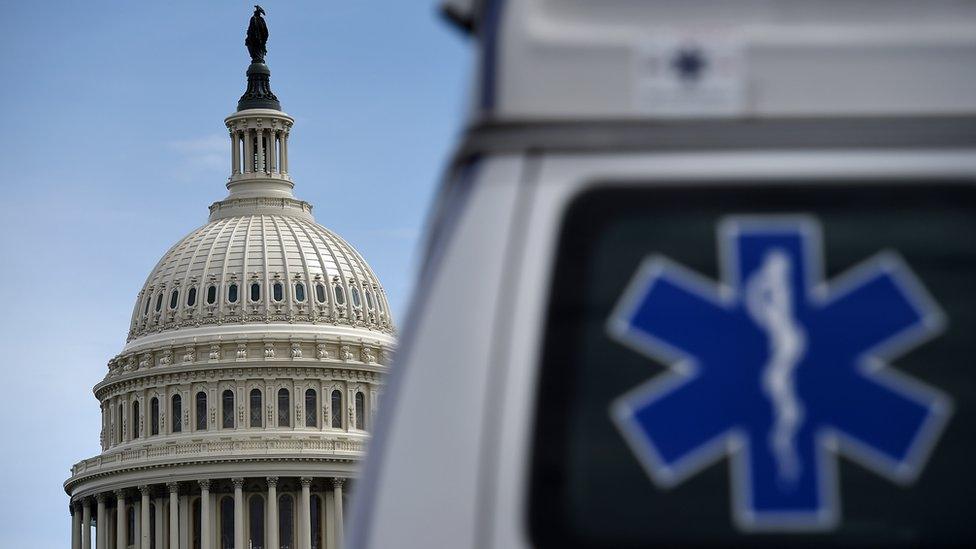
- Published28 March 2020
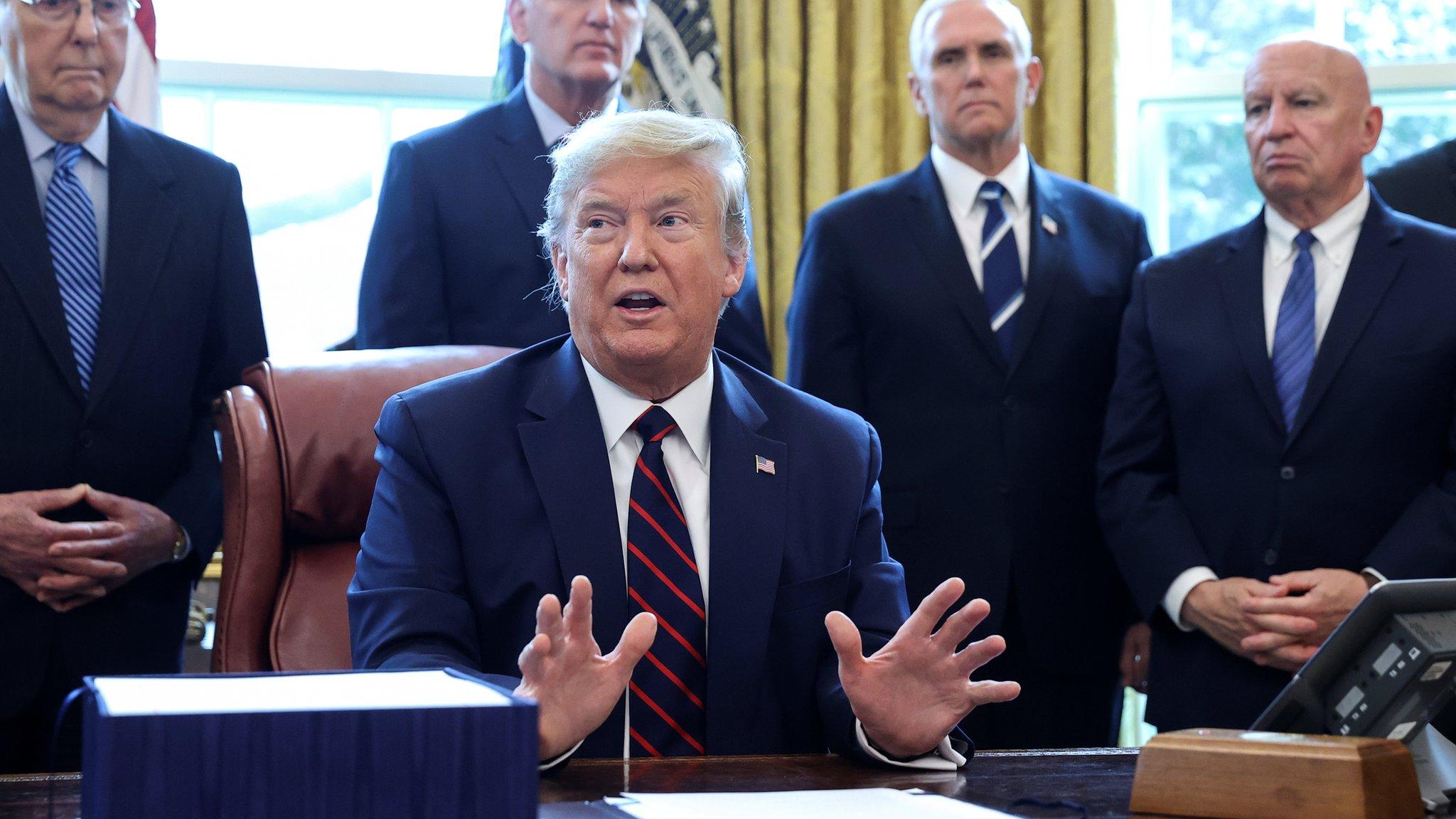
- Published27 March 2020
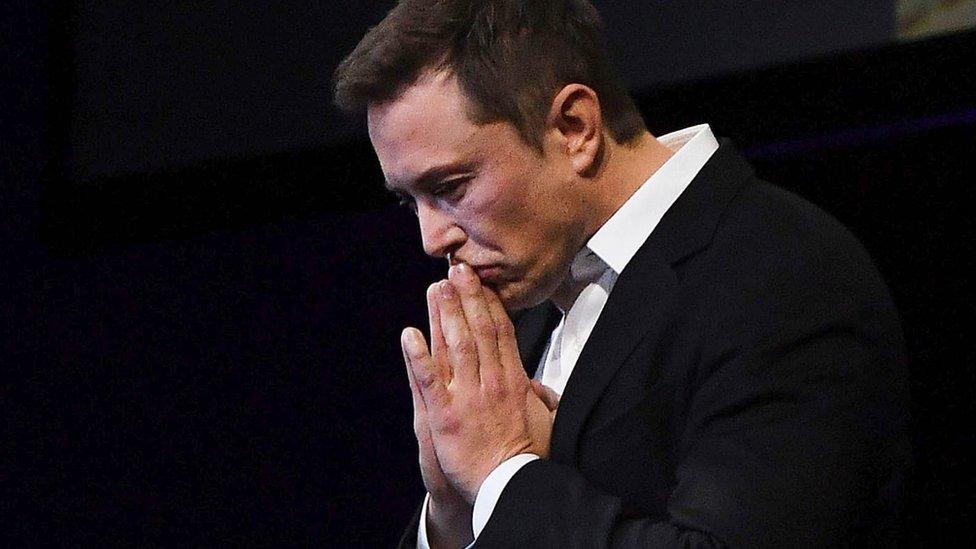
- Published26 March 2020
- Published24 March 2020